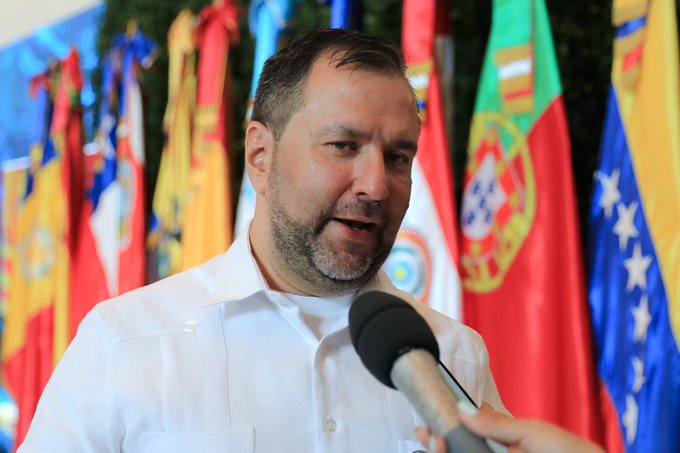The Foreign Minister of the Bolivarian Republic of Venezuela, Yván Gil, participated in the XXVIII Ibero-American Summit on behalf of the national government and in his speech questioned the application of coercive measures as a method of political conditioning to countries.
“We must abandon the neocolonial practices that the United States and the European Union are currently applying against three members present at this summit Cuba, Nicaragua and Venezuela,” said the Venezuelan diplomat.
In this sense, he highlighted that in a short period Venezuela has received more than 900 coercive measures and has lost more than 7 billion dollars, which have been stolen from assets abroad.
Gil reflected that “we cannot talk about a fair and sustainable Ibero-America without respect for the sovereignty and independence” of the countries and denounced that the sanctions “harm us all, violate human rights, impede development and subject the people to hunger ”.
On the other hand, the Venezuelan foreign minister referred to the need to seek the consolidation of a “true and fair, constructive and unconditional cooperation”, through which cooperation ties are strengthened for the benefit of our peoples.
He denounced that the capitalist model of resource consumption has become the main reason for the widening of the “inequality, poverty and hopelessness” gaps.
He saw with satisfaction that these unilateral actions against the affected countries have been questioned at the Ibero-American Summit, but he assured that these impositions have helped Venezuela to reinvent itself.
“Despite all the attacks we have managed to do a lot with little. We are recovering, with our own efforts we have returned to the path of prosperity,” said the foreign minister.
He took the opportunity to highlight how much the countries in this forum have suffered from the consequences of climate change, adding that no country is exempt from these “disastrous consequences”.
On this, he reflected that this extreme situation “forces us to innovate, cooperate and be truly supportive” because in his opinion, “the climate crisis must be addressed jointly.”


















